Editor’s Note: This post is written by a member of LTV’s sponsored content team, The Leisure Explorers. Do you own a Leisure Travel Van and enjoy writing? Learn more about joining the team.
Ready to hit the road in an RV? This short and hopefully useful beginner’s guide provides essential tips to ensure a smooth, enjoyable, and memorable RVing experience. From choosing the right floorplan to mastering RV maintenance, preparing your packing list, understanding campground etiquette, and prioritizing safety, you’ll soon be confidently navigating your RV adventure.
Choosing the Right RV Floorplan
Your RV is your home on wheels, so choosing the right floorplan is crucial. Leisure Travel Vans come in a wide variety of options, and understanding your needs will help you decide which is best for you. Most LTV floorplans can only accommodate two people due to the number of seatbelts. If you are looking for a family-friendly floorplan with four seatbelts, check out the Unity Rear Lounge or Unity Corner Bed, or if you are leaning towards a Ford chassis, check out the Wonder Rear Twin Bed and Wonder Rear Lounge.
Need a lot of outdoor storage? Then the Rear Lounge floorplan of both the Unity and the Wonder offers good storage space. The Wonder Rear Twin Bed even has a bike garage! But keep in mind this class of RVs offers smaller storage than most, so a trade-off is needed when looking at small Class C (B+) RVs.
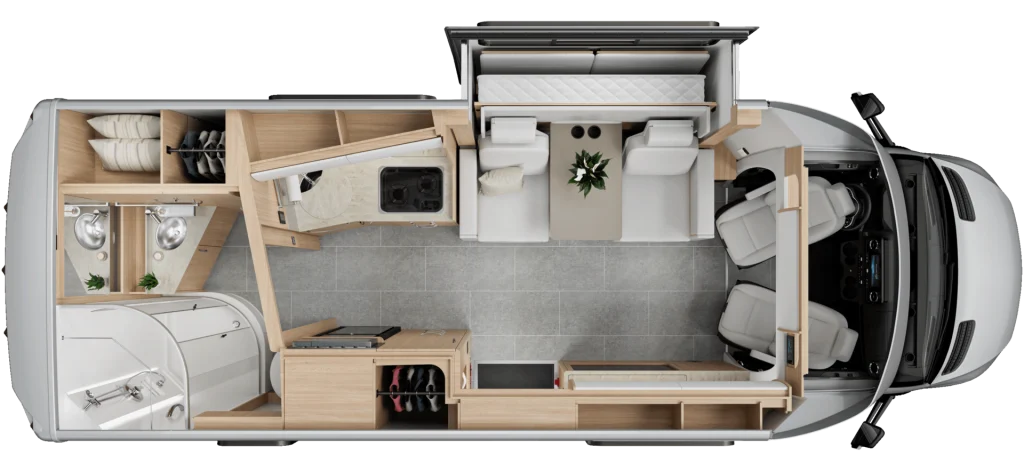
Take your time exploring the different Unity and Wonder floorplans, designs, and features. Try to visit RV shows or dealerships to get a firsthand look and feel of various models.
When Janet and I were first looking at Leisure Travel Vans, we were leaning toward the Rear Twin Bed from watching the videos; however, once we walked in one and then the FX, we were sold on the FX. So seeing some in person is an excellent way to cement your floorplan decision.
Understanding RV Maintenance
An RV is a significant investment, and its longevity and performance largely depend on regular maintenance. Every part of your RV requires care and attention, from mechanical aspects to living areas. Under the hood, routine checks of the engine, tires, and brakes are crucial. Remember to regularly change your oil and other engine fluids according to the manufacturer’s recommendations. Keep an eye on tire pressure to ensure safe and efficient driving. Be sure to check out my recent story on tire safety to keep you on the road rather than on the side of it.
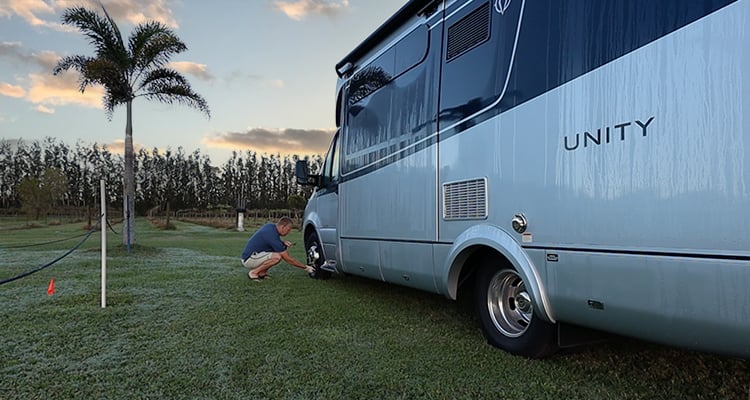
Regarding your RV’s living quarters, ensure you sanitize your fresh tanks, change your in-house water filter and use a black tank additive like Happy Camper to keep your RV’s plumbing system at its finest. Another thing to do is regularly clean your air conditioning filters and look for loose drawer glides or hinges. You have a traveling earthquake, and making sure nothing is going to fall out makes it easier than repairing it.
For those not mechanically inclined, consider enrolling in an RV maintenance course (YouTube is an excellent source for information and for free!) or having your dealer check out your rig at various times. It’s better to prevent problems than to deal with expensive repairs down the line.
It’s also smart to read up on RV electricity, so you have some basic knowledge of how your rig operates. Educate yourself on where your fuse boxes are, understand how your RV gets power, and how to troubleshoot if needed.
Packing Essentials for Your RV
Packing for an RV trip requires thoughtful preparation. It’s not just about bringing clothes and food; it’s about ensuring you have the tools and items to make your journey comfortable and trouble-free. As I said earlier, an LTV is a small space with limited storage and weight limits, so bring only what your rig can handle weight-wise.
Consider dividing your packing list into categories like kitchen supplies, personal items, outdoor gear, and RV equipment. For the kitchen, besides food, you’ll need cookware, utensils, and cleaning supplies. Personal items should include clothing suitable for changing weather conditions, sunscreen, and a bag full of quarters for the laundromat.
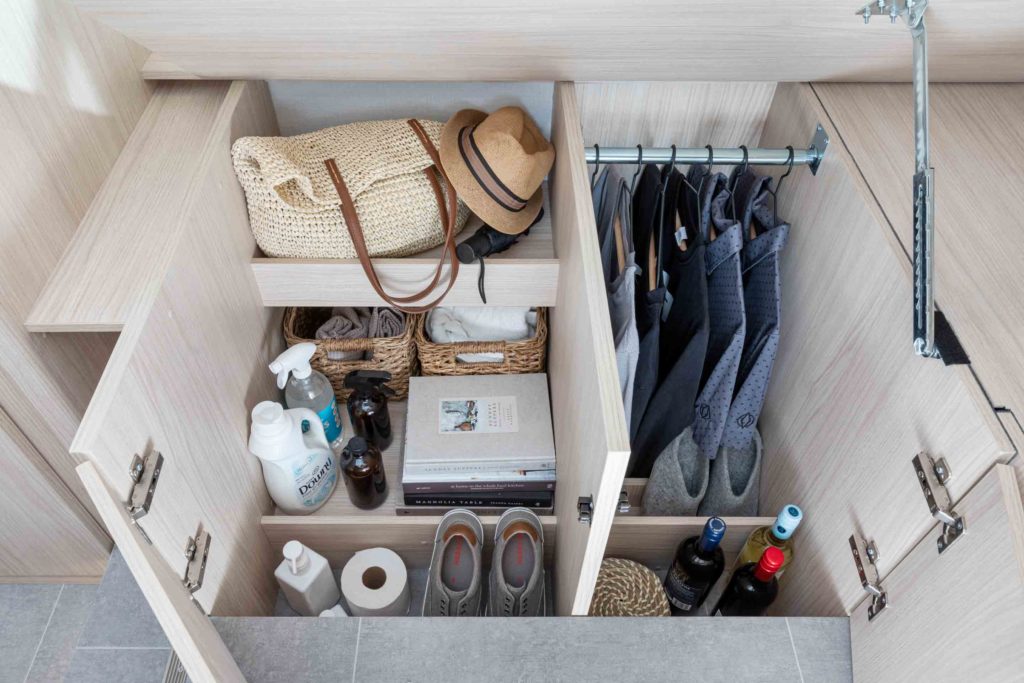
Depending on your activities, your outdoor gear could consist of camping chairs, a portable grill, hiking equipment, or fishing gear. For RV equipment, don’t forget the necessary tools for small repairs, spare parts like fuses, leveling blocks, and power adapters. Robertson screwdrivers are a must-carry if you own an LTV. LTV is a Canadian company, so you won’t find many Phillips or flathead screws. Check out our must-haves and essentials for a one-stop list of what we carry in our LTV.
To sum up, always remember that it’s easy to get something you may need on the road rather than pack your rig full of stuff you will never use. Remember, weight affects fuel efficiency and safety, so aim to bring only what you need. I suggest going on a trip with the bare minimum and seeing what you will truly use or wish you had.
Campground Etiquette
Campgrounds are shared spaces, and following campground etiquette is key to ensuring a pleasant stay for everyone. Keep noise levels low, especially during quiet hours, typically from 10:00 pm – 8:00 am, respect boundaries and don’t walk through others’ campsites, and always clean up after yourself and your pets if you have them along.
Remember the golden rule of camping: leave no trace. This means leaving your site as pristine as you found it, packing out all trash, and avoiding damage to natural features. It’s considerate to the next campers and helps preserve the environment. Also, if you don’t have to use your generator, don’t. If you are in close proximity to other campers, generator noise is one way to ensure you aren’t making any friends.
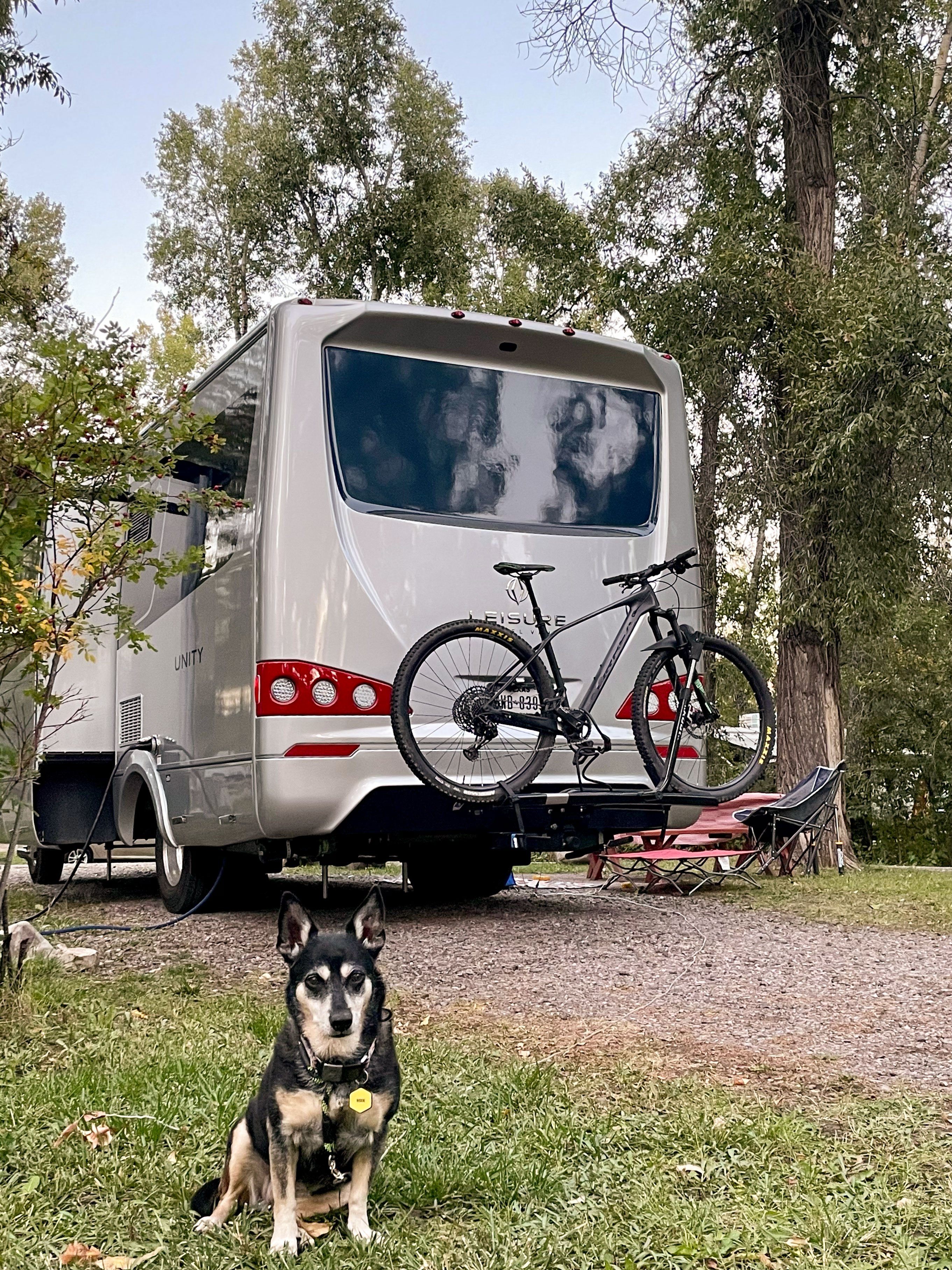
Safety Tips for a Smooth RVing Experience
Safety should always be a top priority in RV travel. Driving an RV requires constant alertness and making sure you have plenty of time and distance to make any sudden lane changes or exit ramps. If you’re not used to driving large vehicles, take an RV driving course to learn about maneuvering, parking, and dealing with different road conditions. Always be aware of the weather, and be ready to adjust your plans if necessary. Having a weather radio or app can be beneficial. We carry a WX battery-powered radio to be on the safe side.
Your RV should be equipped with a well-stocked first aid kit, and it’s wise to familiarize yourself with basic first aid procedures. Always know the location of the nearest medical facility to your campsite. Wildlife interactions, bike accidents, or even a twisted ankle from a rogue rock on your hiking trail can make a medical visit necessary.
Fire safety is paramount. Ensure your RV has a fire extinguisher and smoke and CO detectors, and check their condition regularly. Never leave cooking unattended, and make sure your campfire is completely out before leaving it or going to bed.
Lastly, when leaving your RV unattended, ensure it’s secure. Lock all doors and windows, keep valuable items out of sight, or take them with you. We opted for the optional safe in our LTV, and we keep some extra cash and essentials in case our rig is ever broken into. Even in nice campgrounds, sticky fingers can find their way to your RV or electric bike.
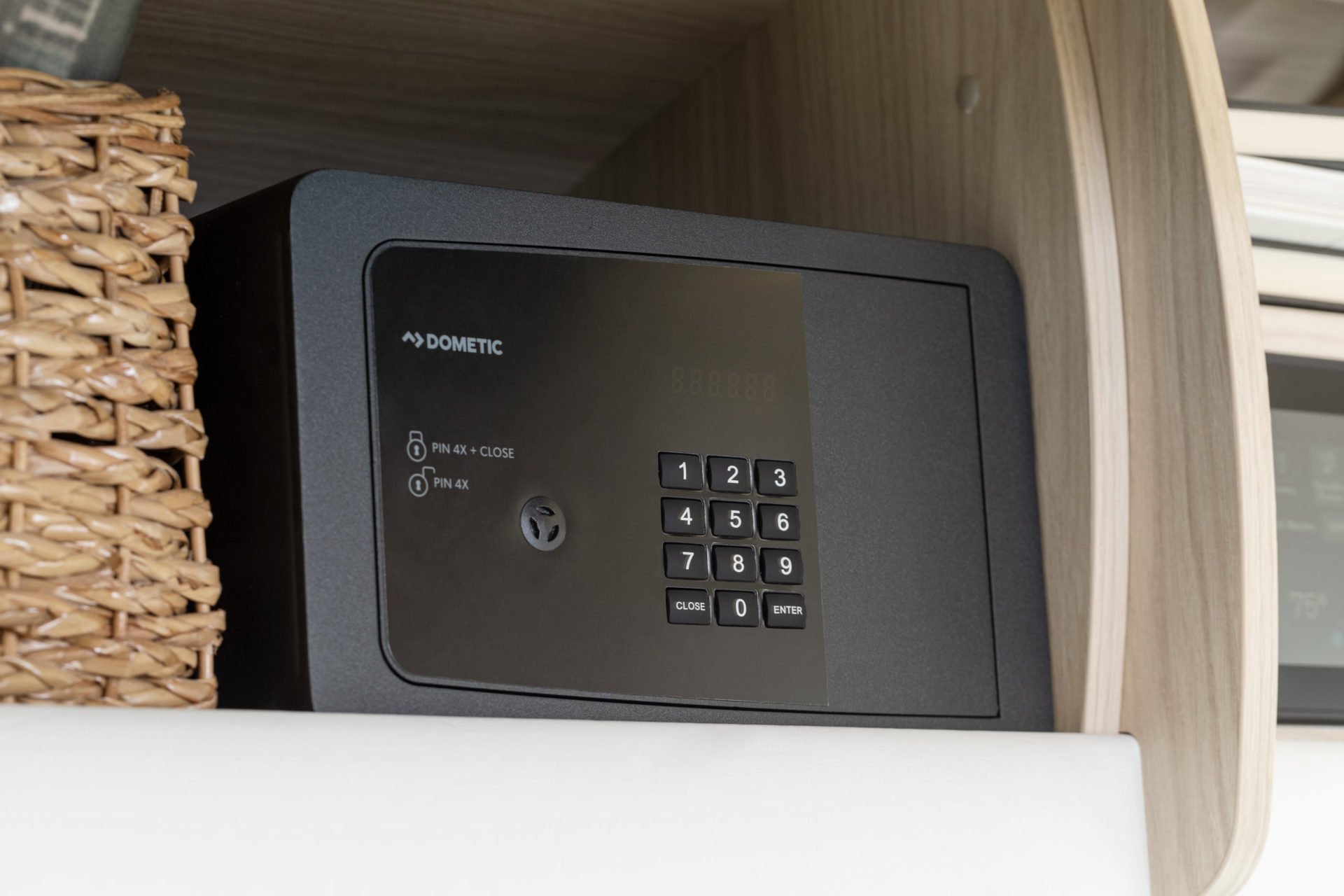
Understanding OCCC & GVWR
OCCC stands for Occupant and Cargo Carrying Capacity. It is the maximum weight of occupants, cargo, and water that can be safely carried in an RV. The GVWR, or Gross Vehicle Weight Rating, is the maximum weight of the RV itself, including all passengers, cargo, and water. GCWR stands for Gross COMBINED Weight Rating, which dictates how much weight you can tow as well as carry. The OCCC is important because it helps ensure an RV is not overloaded. Overloading an RV can cause a number of problems, including:
- Reduced fuel efficiency
- Increased wear and tear on the vehicle
- Increased risk of accidents
- Inability to tow a trailer or tow car
The OCCC is different from the GVWR because it does not include the vehicle’s weight. For example, an RV with a GVWR of 11,030 pounds and an OCCC of 1,500 pounds can safely carry 11,030 pounds. The OCCC is the sum of GVWR minus factory curb weight. You can find this information on the door jamb of your RV. For example, our 2020 Unity FX has a GVWR of 11,030 pounds and an OCCC of 1,502 pounds. This means our LTV, without any cargo or people, weighs 9,528 pounds. It is important to note that the OCCC is only a maximum weight. It is not recommended to load an RV to its maximum capacity. Instead, it is best to leave some margin for error. This will help ensure the RV is safe to drive and operate. Here are some tips for staying within the OCCC:
- Weigh your RV after you’ve loaded it. Many truck stops have easy-to-use CAT scales. If you are over the GVWR, offload some cargo to stay in the safety zone.
- Pack light–only bring the essentials with you.
- Store cargo evenly throughout the RV. This will help to distribute the weight evenly.
- Fill your fresh water tanks only when necessary. (We travel with about 30% full fresh)
At the end of the day, stepping into the world of RVing might seem overwhelming, but with preparation and understanding, it becomes an enriching and liberating adventure. Remember to enjoy the journey as much as the destination. Happy RVing!
Editor’s Note: The views, recommendations and opinions expressed in this article are those of the author(s) and are not necessarily those of Leisure Travel Vans.


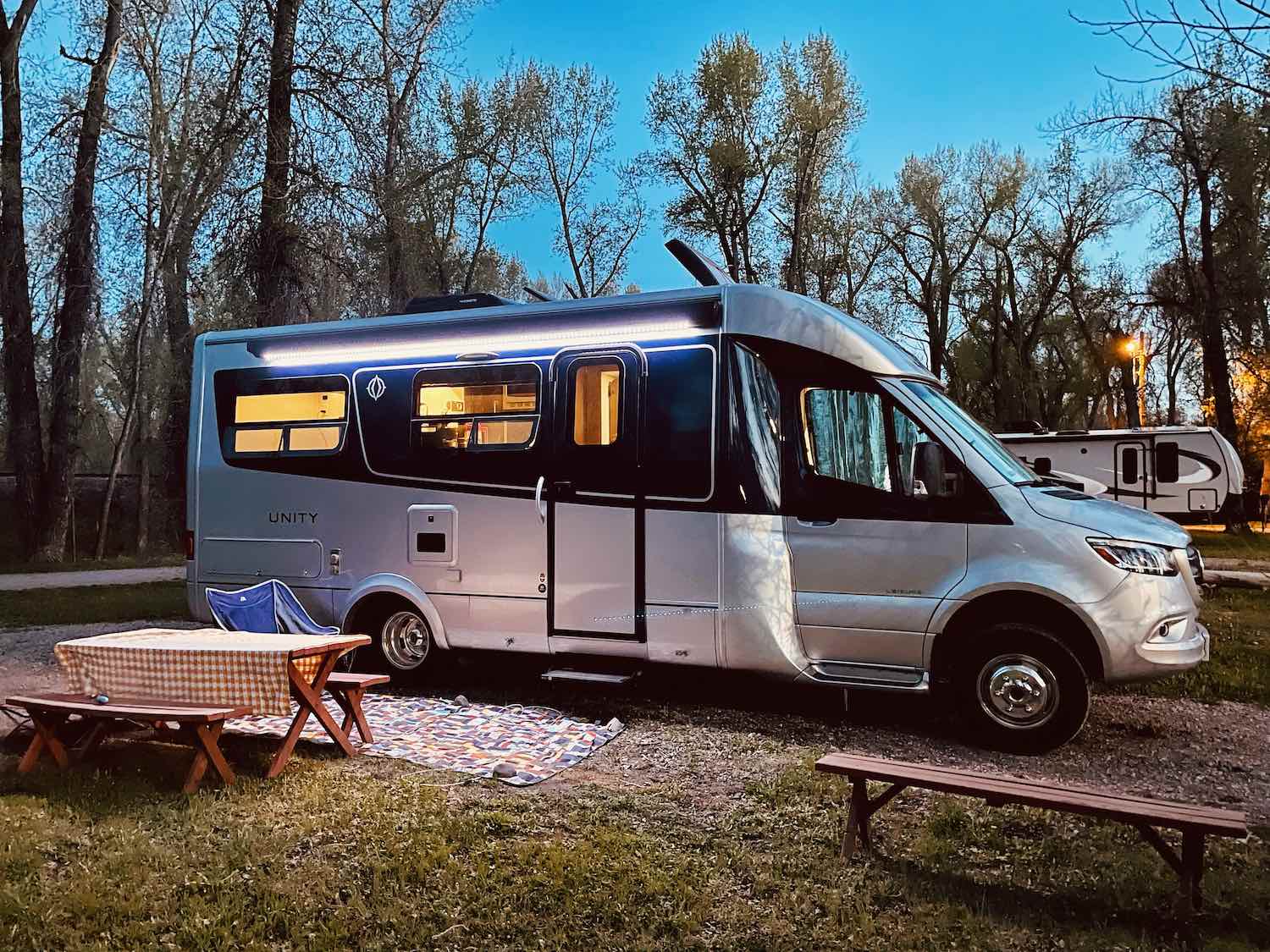
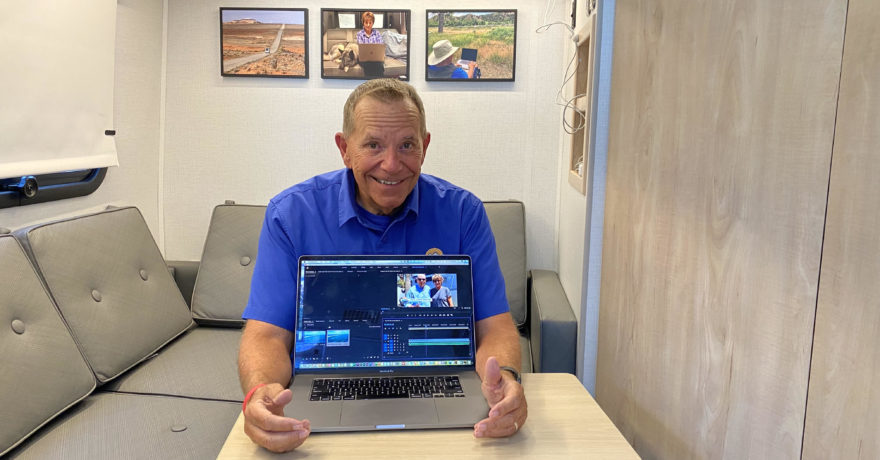
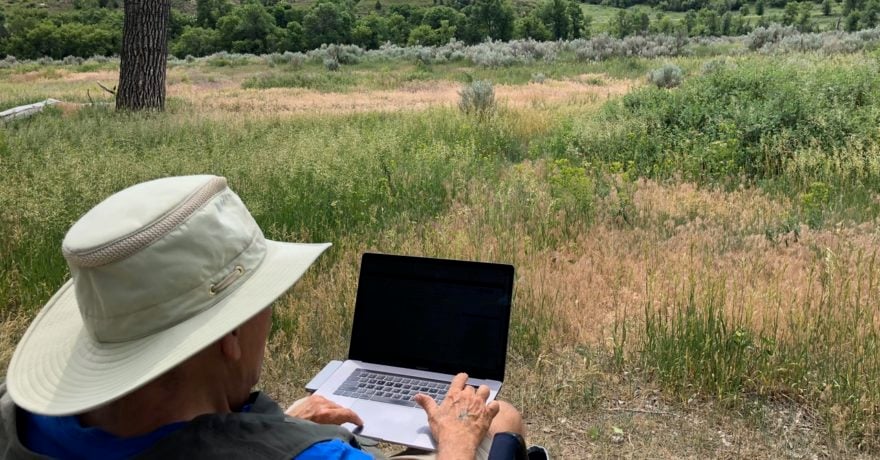
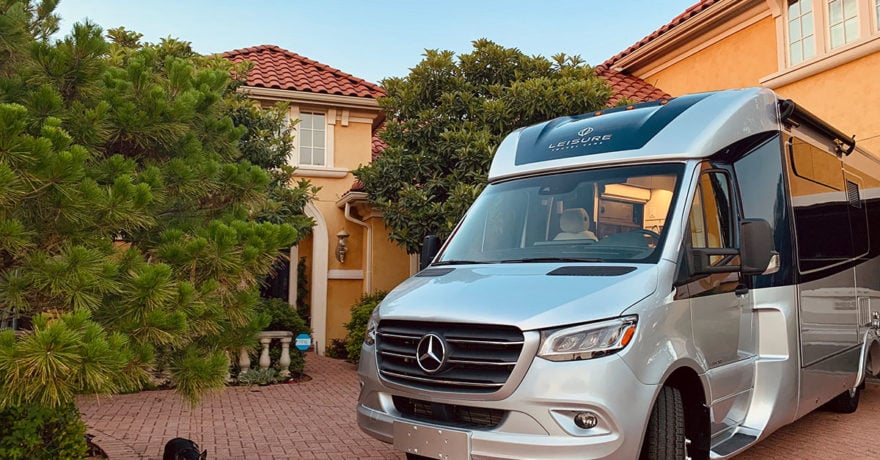
Comments